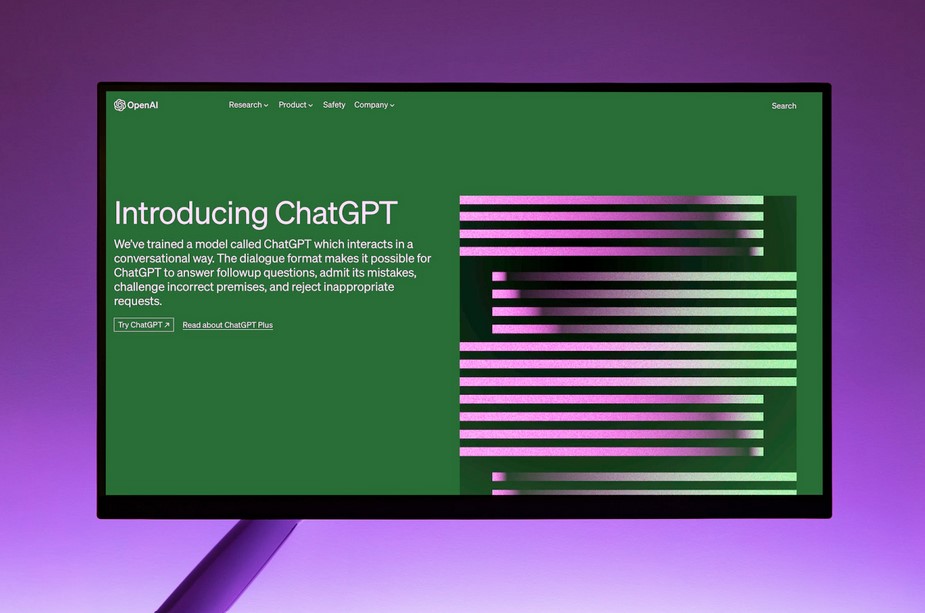ECLIPSING THE TITANS
(MSFT), (GOOGL), (NVDA), (AAPL), (NVDA), (META)
Strap in because the financial stratosphere is welcoming a new star. OpenAI is skyrocketing, with whispers of a valuation floating between $80 billion and $90 billion.
Reports reveal chatter about a potential OpenAI share sale at this eyebrow-raising valuation. Why? It seems employees are eager to exchange their stock for some hard cash with external investors. And let's not forget, in yesteryears, venture firms have been known to sweep up OpenAI shares through tender offers.
Investor antennas are naturally tuning in to OpenAI's frequency. After all, if we break it down, an $80 billion to $90 billion valuation means investors would be shelling out $90 for each revenue dollar this year. This places the brain behind ChatGPT ahead of AI behemoths like Microsoft (MSFT), Alphabet (GOOGL), and Nvidia (NVDA), at least when dissecting specific metrics.
A brief spotlight on the AI arena: Microsoft and Alphabet are no strangers to the AI chessboard. Microsoft, which holds a 49% stake in OpenAI, and Alphabet, gearing up with its AI endeavor, Gemini, are both poised to make significant moves. Yet, OpenAI's speculated valuation seems to be running laps around them.
And then there's Nvidia. With AI fever at an all-time high, Nvidia's chips are in hot demand. Its stock has surged, reflecting investor excitement over its expected growth.
But here's the caveat: Start-ups often sport valuations that are disproportionate to their mature counterparts. They’re more about future potential than present profits.
So, if OpenAI's valuation indeed reaches the stratosphere, it's poised to rub shoulders with TikTok's parent, ByteDance, and Elon Musk's SpaceX. Yet, a full comparison becomes a tad challenging with private entities playing their financial cards close to their chests.
Naturally, the most pressing question is: What's next for OpenAI?
Well, it's still in its revenue infancy, having seen a significant influx post ChatGPT's November release. Evidently, an $80 billion to $90 billion valuation speaks volumes about the bullish sentiments surrounding AI, though. Actually, projections place the AI market at an awe-inspiring $407 billion by 2027, ascending from its already respectable $86.9 billion perch in 2022.
Dialing into the numbers, OpenAI projects are hitting the $1 billion revenue mark this year and teasing a meteoric rise into the multi-billions by 2024. Quite the leap! Their revenue engine? While ChatGPT plays the generosity card by being free in its basic form, advanced features come with a price tag. Moreover, corporations looking to harness OpenAI’s AI prowess for their products are signing checks with more zeros than we'd like to count.
But there’s more in OpenAI's innovation pipeline. A recent unveiling brought forth a ChatGPT iteration capable of voice interactions and visual engagements, making it a formidable contender to AI assistants such as Apple's (AAPL) Siri. This is an excellent move since 50% of U.S. mobile aficionados are now using voice search daily. It's clear: AI-driven voice assistants aren't just creeping into our routines; they're anchoring them.
Remember when ChatGPT also provided a backdoor to Bing? Although it was short-lived over concerns of paywall circumventions, it certainly added a feather to its cap. And speaking of accolades, ChatGPT enjoyed its moment in the sun as the fastest-growing consumer application.
At the time, ChatGPT didn’t just arrive; it made a statement. Boasting a user base of 1 million within merely five days of its debut speaks volumes about its acceptance rate. It was eventually dethroned by Meta's (META) Threads app. Still, that was quite the ride to the top for this upcoming company.
However, for retail investors hoping for a slice of the OpenAI pie, CEO Sam Altman might be throwing cold water on those hopes. His vision for the company doesn't seem to align with an immediate IPO or a sale — yet.
And while some might view the current AI market valuations as inflated bubbles reminiscent of the internet's early days, it's essential to remember: just as with the internet, we might be underestimating AI. As OpenAI's valuation catapults and its technological advancements carve out new niches, we're reminded of the uncharted potential that AI holds. The meteoric rise of ChatGPT, the strategic moves within the AI ecosystem, and the relentless pace of innovation underscore a clear narrative: AI is not the future; it's the present.


